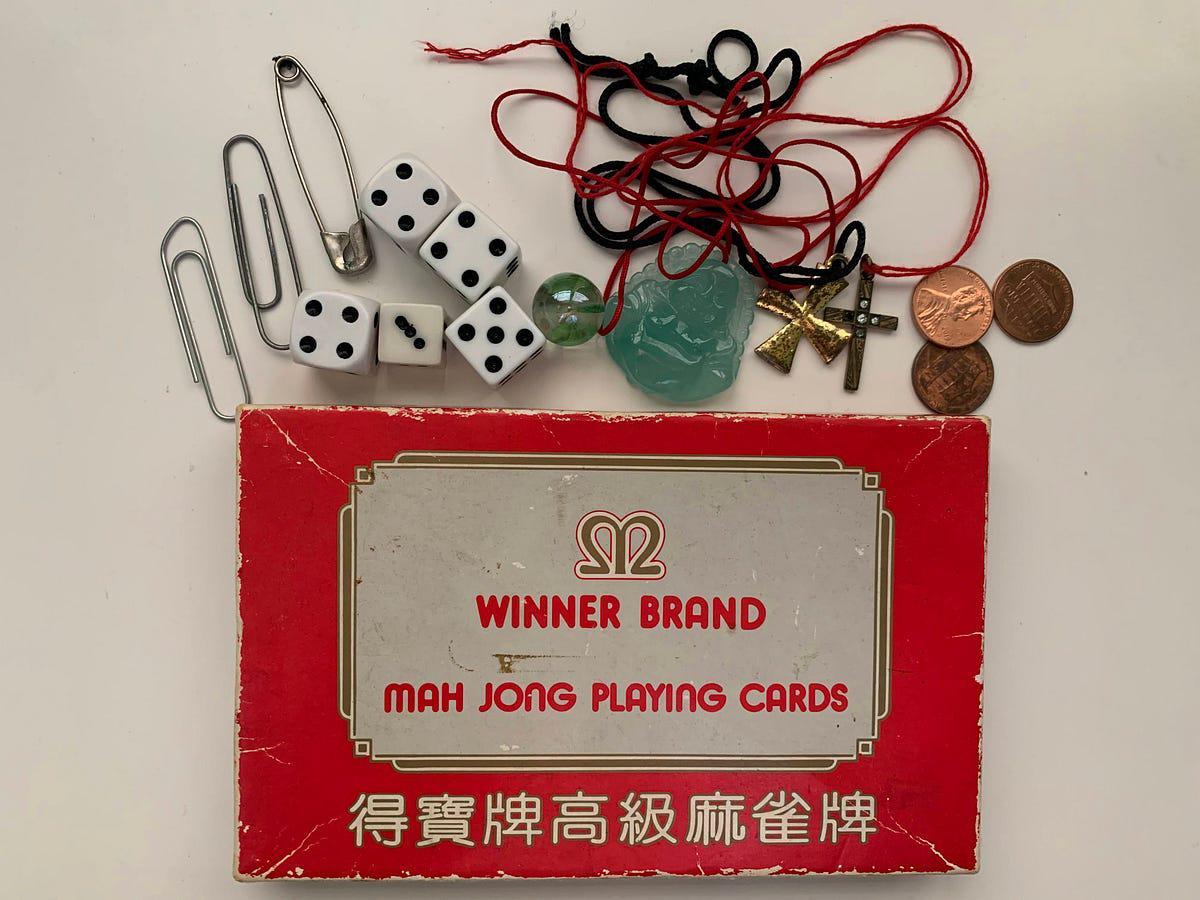My grandmother expressed her love for her grandchildren through cookies, cakes, and pies, so my grandmother expressed her love for us with pennies, pendants, and marbles. My grandma loved to collect other junk and give it to us. Once, after eating dim sum, she picked something up from the ground in the parking lot. "This is a marble for you," she said in Cantonese, dropping a bright green M&M into my hand. Another time, she found a rusty cross pendant and strung it on a red thread to make a necklace for me, even though neither of us were Christians. I had never collected pennies, but somehow she got the idea that I did. I now have over 700 pennies from her, and I count them on the nights I miss her.
Growing up in poverty in northern Vietnam, she could not afford to waste anything. Everything was in short supply, especially during the Vietnam War. Irreplaceable clothes became floor towels. Old chopsticks became plant stakes. Empty cans became coin holders. Everything had value to her, but what she cherished most was her family. When her husband passed away, he left her with little money and seven children to raise. She sold anything that could earn money for her family, from soap to candy, popcorn, paper, grass jelly, and more. Through her hard work and resourcefulness, she saved enough money to immigrate herself and her family to America.
And that is where I was born. My father is the youngest of seven children. I remember spending weekends at her house. She lived there for over 30 years. Her desk was cluttered with school photos of her 20 grandchildren and pictures of people she no longer recognized. Her walls were decorated with years' worth of Chinese calendars. Her closet was filled with rusty mooncake boxes and tattered clothes. She struggled to let go of things. It was a habit I must have picked up from her. Just as she was attached to her belongings, I was attached to her. And I didn’t want to let her go.
Watching my grandma fall asleep in the hospital bed, I knew this was not the life she wanted. She wanted to be sitting at the mahjong table, not lying in a hospital bed. She wanted to breathe fresh air, not through an oxygen tube. I wanted her to walk, talk, and eat again. But at the same time, I was not ready to let her go. My selfish part wanted her to stay. I wanted to see her, hug her, hold her, and kiss her. But above all, deep down, I wanted her to be happy. And for her to be happy, I needed to let her go.
So on my next visit, I sat by her side and held her hand. It was still her hand, though swollen and hurt. I slowly massaged it to ease the swelling. She slept often. When I whispered to her, "Grandma, we may not be ready, but if you are, please don’t worry about us."
Before I left, I gently kissed her on the cheek. Suddenly, I felt her gently squeeze my hand as if she didn’t want to let go. But she ultimately learned. Shortly after her death, she visited me in my dreams. She was awake in bed. I playfully kissed her cheek, and she laughed the laugh I wanted to hear again. Then she pulled my head close to her, her hand warm and strong, bidding me farewell.
Sean Tran is an American writer based in Taipei, Taiwan. His writing has been featured in The New York Times, Chicago Tribune, The Wall Street Journal, Mad Season Review, and Slackjaw.
